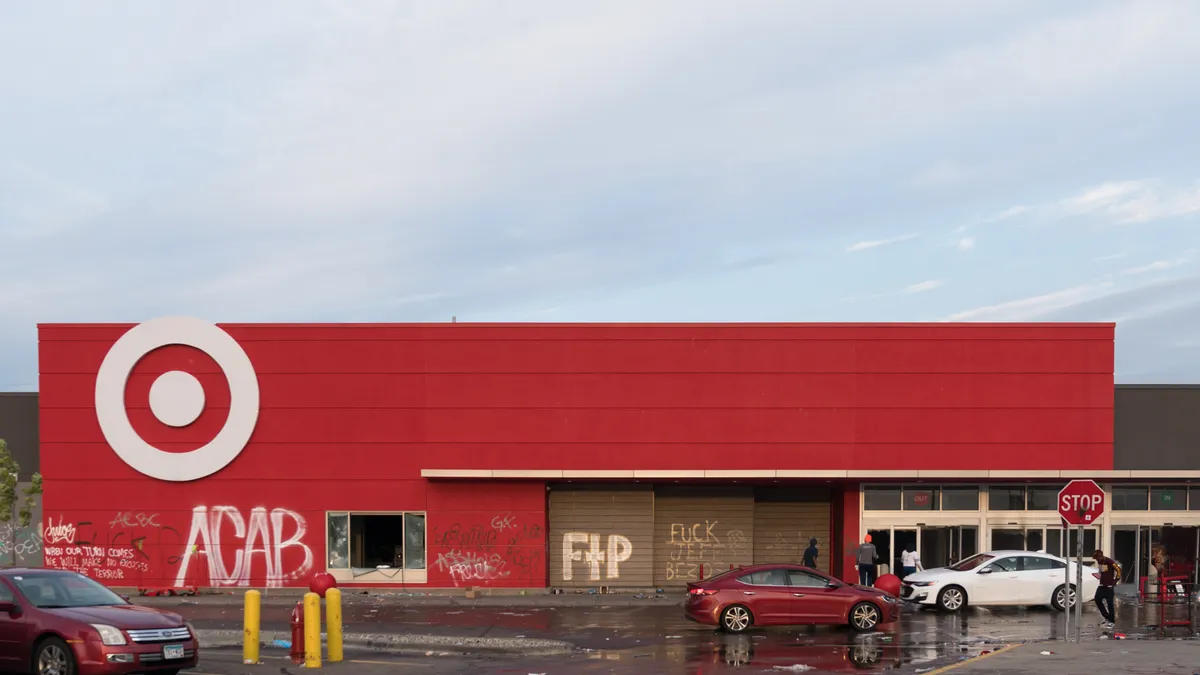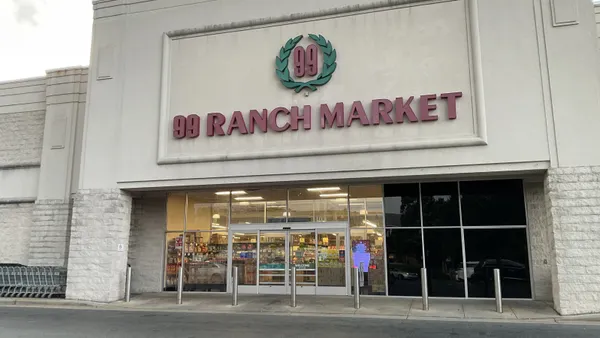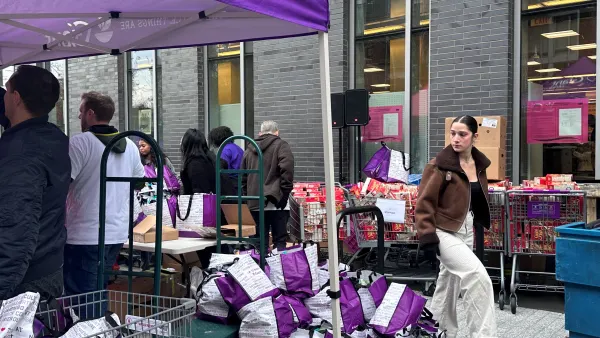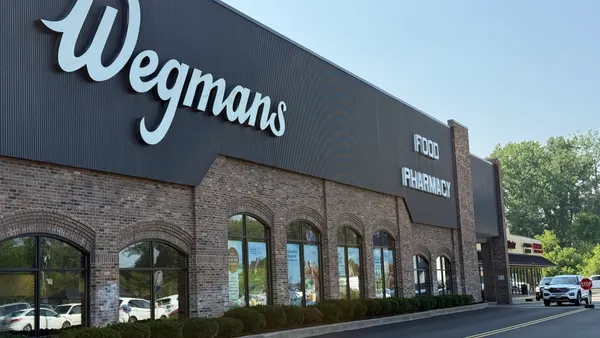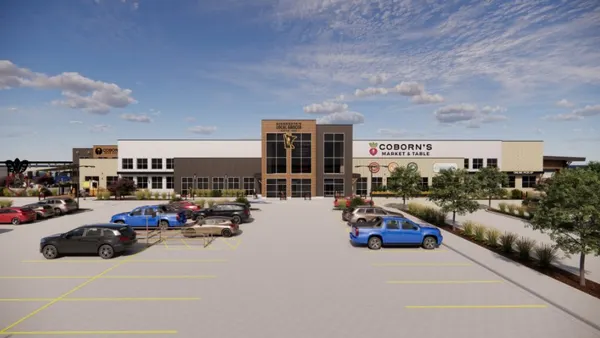Dive Brief:
- Dozens of grocery stores across the U.S. sustained store damage and looting during protests over the weekend, according to company announcements and local media reports. Minneapolis-based Target closed six stores in five states and limited hours at nearly 200 locations Sunday while Walmart closed several hundred locations an hour early and reported more than a dozen locations have been damaged in cities like Minneapolis, Atlanta and Dallas.
- Grocers including Kroger, Cub Foods, Whole Foods and Vons also had store locations damaged. Retailers preemptively closed some stores over the weekend and took measures like boarding up windows and barricading doors to prevent looting
- Target CEO Brian Cornell announced that all employees at impacted stores, including the more than 200 at its Lake Street store in Minneapolis, which was severely damaged, will be provided their regular pay and benefits "in the coming weeks."
Dive Insight:
In a note posted Friday to the company's website, Cornell acknowledged the pain and frustration fueling protests in its hometown and in cities across the U.S.
"We are a community in pain," he wrote. "That pain is not unique to the Twin Cities — it extends across America. The murder of George Floyd has unleashed the pent-up pain of years, as have the killings of Ahmaud Arbery and Breonna Taylor. We say their names and hold a too-long list of others in our hearts."
A handful of its stores were severely damaged over the weekend, most notably its Lake Street store in Minneapolis located near the site where Floyd was pinned by police officer Derek Chauvin and subsequently died. A Target store in Atlanta had fireworks go off inside, which sparked a fire, according to a local news report. A company spokesman told The New York Times that most impacted stores should be up and running again soon, though repairs to its Lake Street location will require significant time to complete.
The weekend saw peaceful protests in cities across the U.S., but also looting and vandalism that forced many other food retailers to board up their doors and preemptively close.
More than a dozen Walmart stores across the country, including locations in Atlanta and Dallas, have closed due to structural damages and looting. Several hundred of its stores closed an hour early on Sunday so employees could return home safely. The majority of its stores will reopen on Monday if it’s safe to do, a spokesperson told Yahoo Finance.
At some of its stores in the Cincinnati area, Walmart posted signs, blocked doorways with guard rails and stacked water bottle pallets against the store entrance, WCPO reported.
Also in the Cincinnati area, Kroger workers took to store intercoms to inform shoppers that stores would close at 8:30 p.m. Sunday evening. The retailer plans to continue early closures in anticipation of more protests.
In other cities, Kroger stores faced worse conditions. A store in the Buckhead neighborhood of Atlanta was broken into and ransacked.
A Vons store in Santa Monica, California, faced a similar fate on Sunday evening, and a video captured people running out of the Cub Foods store on East Lake Street in Minneapolis. The store, which is located near the severely damaged Target store, also sustained fire damage.
The owners of this Cub gave me permission to show the damage inside pic.twitter.com/Y1j0Zs1byz
— Lou Raguse (@LouRaguse) May 28, 2020
Meanwhile, a few Amazon-owned Whole Foods stores were looted in Los Angeles, Chicago and Minneapolis. The retailer announced it would temporarily close some locations and adjust store hours based on city curfews.
Only a few weeks ago did the grocer’s Bryant Park store in New York City begin taking grocery delivery orders. However, due to the protests, it will stop taking online orders early, according to CNBC.
Despite the destruction to store property, company executives struck a supportive note in statements. In a message posted to LinkedIn, Kroger CEO Rodney McMullen said he was "deeply disturbed and shaken by the events of the past week" and noted the COVID-19 pandemic is one of several challenges the country currently faces.
"Our collective energy is necessary to achieve true equality and inclusion for our country," he said. "At Kroger, we are committed to doing our part to bring Americans together, as an employer, grocery provider and community partner."
The looting and store damages adds to the pressure most grocery chains across the country are already feeling due to the COVID-19 pandemic. They’ve had to reduce store hours, step up cleaning procedures and close stores temporarily if an employee is infected. They have also struggled to keep products like toilet paper, fresh meat and hand sanitizer on shelves as the virus disrupts the supply chain and shifts more shopping online.


